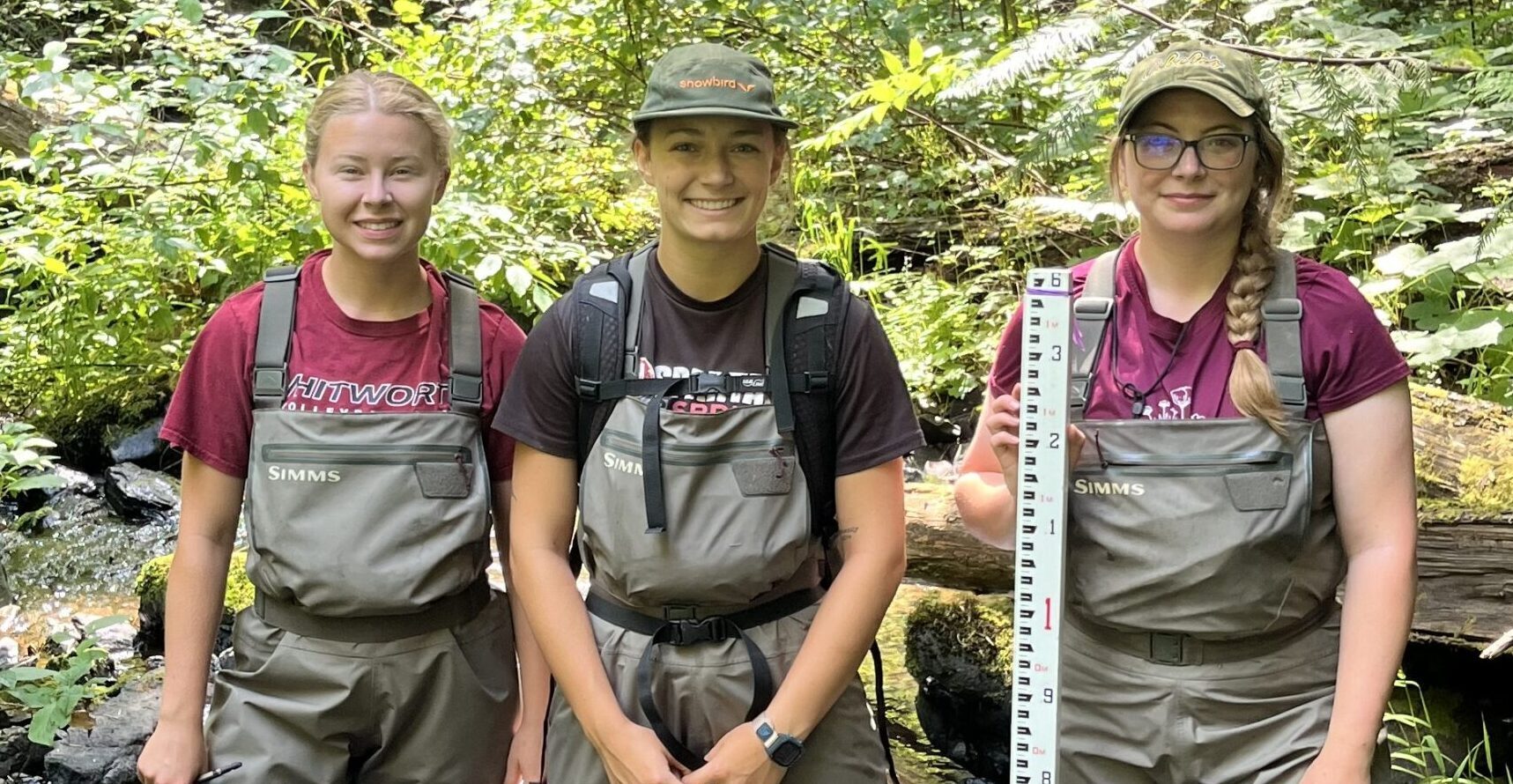Interns Power Salmon Reintroduction Habitat Research

Meet Lauryn, Hazel and Mackenzie hailing from Whitworth, Eckerd College and Eastern Washington University respectively. Over the dry, hot summer they could be found hiking and bushwacking, often to remote streams and creeks throughout the Spokane River Watershed. Their destination found, they conducted habitat surveys, placed probes to test water temperature, and conducted eDNA sampling to detect the presence of fish species.
When future generations tell the story of successfully reintroducing salmon and protecting redband trout in the Spokane River Watershed, these young women will be among the unsung heroes who did the nitty gritty work to identify where the fish are most likely to survive, where habitat restoration and fish barrier removal will be most effective, and how to best mitigate many other factors that could limit success.
“I love this job,” said Lauryn. “But field work is tough. Besides the weather, you need to problem solve and be patient.” Chimes in Hazel, “None of us knew each other when we started. But we became a team of friends and colleagues learning to lead, be efficient and make decisions in the field.”
Their work is being done under the watchful eye of Caleb McGivney, Spokane Tribe of Indians Fisheries Habitat Biologist and Coordinator of the newly formed Spokane Salmon Restoration Collaborative (SSRC). Said Caleb, “We spent the winter months working with a consultant and being advised by state and local agencies, non-profits and universities to put the protocols together for this effort. The interns were amazing at working through kinks in the field and getting the job done.”
Placing interns in the field was made possible by the Spokane River Forum receiving a grant from the Rose Foundation, which is dedicated to “amplifying community voices by making grants, building capacity, and fostering the next generation of environmental leaders.” Said new Forum Executive Director Happy Avery. “For Rose, it was a win-win. They are very supportive of salmon reintroduction efforts and fully committed to developing the next generation of environmental scientists and natural resource managers to make it happen.”
For the interns, the experience has multiple career pathway dimensions. “I learned how such a massive project like this starts from the ground up,” said Mackenzie. “And now I’ve got experience in differentiating habitats, sampling, working with landowners, and understanding how all the data fits into modeling needed to create a habitat restoration plan. And that’s in addition to the teamwork skills.”
The interns were also struck by seeing the watershed in a way few can do. As they bushwacked to creeks and streams, their field of vision expanded far beyond what most of us can see from roads, bridges, paddling, walking a trail, or taking in a backyard view. Said Hazel, “I created a mental map of the area through understanding the watershed. How cool is that?”
And what they saw speaks to the challenges and hopes of the future. Said Lauryn, “We saw dried up creeks, high water temperatures, algae, weed canary grass, and other things that make having the fishery we want all but impossible. But we also saw areas with the cool, clean, flowing water fish can thrive in.”
Put it all together, and the interns are guardedly optimistic. Just listen in:
Mackenzie: “We know there will be more development and people moving in.”
Lauryn: “So reintroducing salmon means we need to battle for it.”
Hazel: “It’s a conversation we need to have across the community to make it happen, especially landowners with streams running through their property. We need their help.”
A big Forum thank you to the interns for getting after it.
From Caleb’s perspective, “The work has just begun. We’ll be out sampling next summer as well with all the data helping us develop a habitat restoration plan for salmon and native redband trout that’s second to none.”
To be put on the SSRC email list for future updates or if you are a landowner interesting in participating, send an email to info@spokanesalmon.org.
